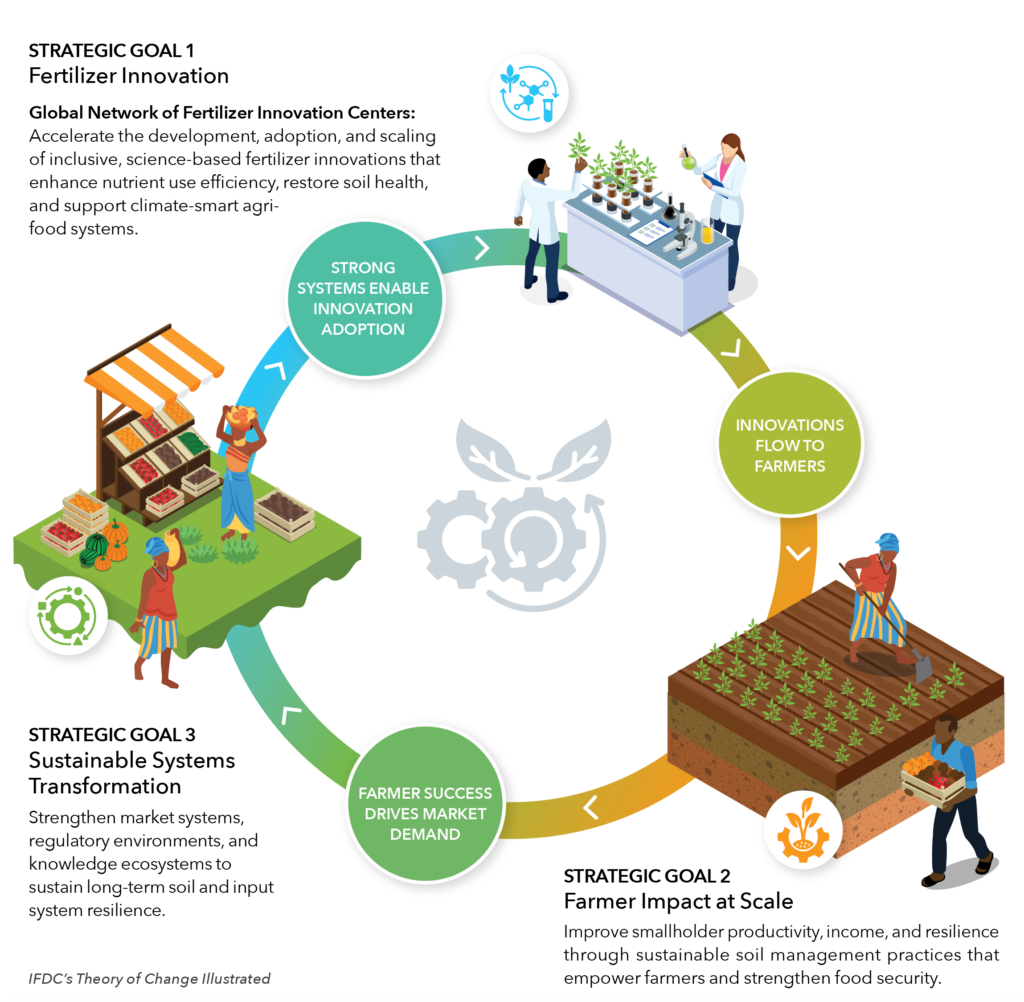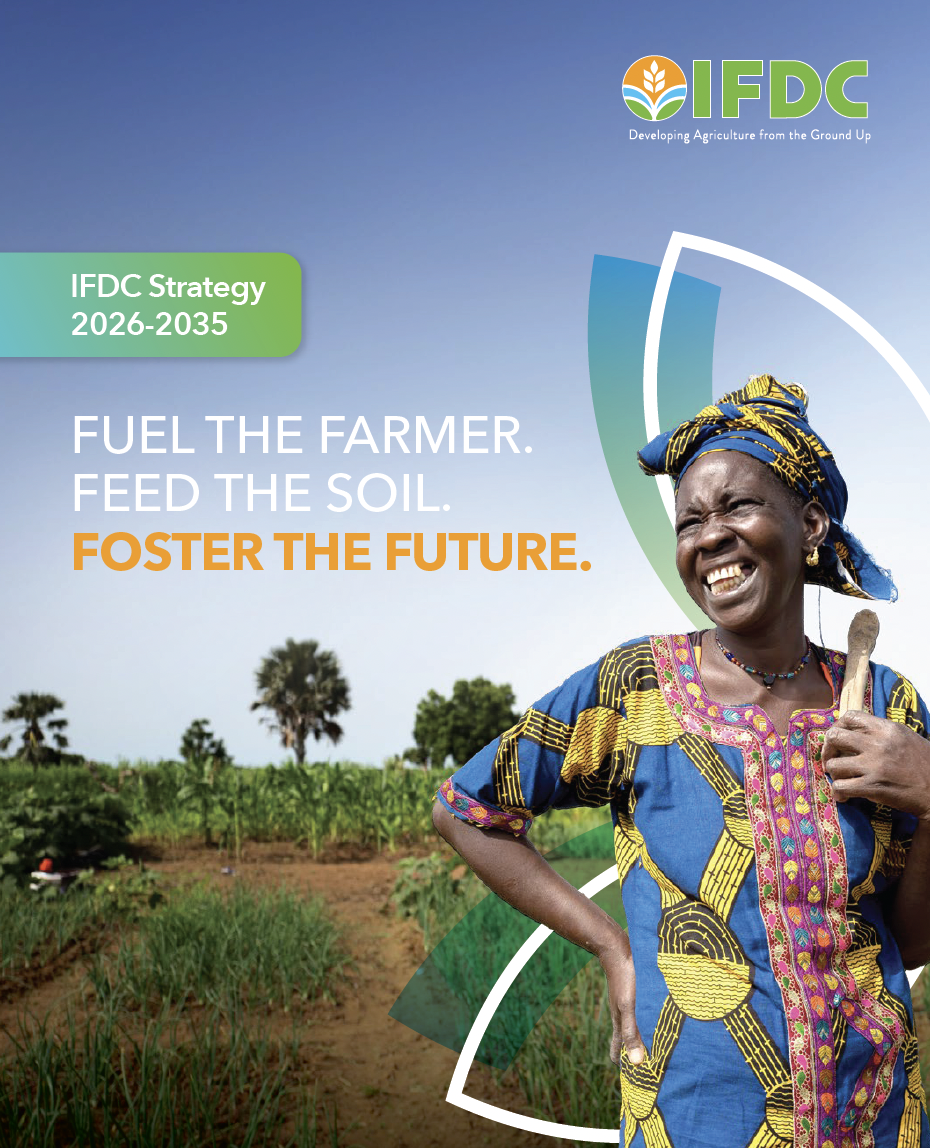
Vision
A world where farmers thrive on healthy soils, empowered by fertilizer innovation and sustainable practices, producing abundant and nutritious food for all on less land while restoring our soils and safeguarding our planet for future generations.
Mission
Innovating soil and fertilizer solutions to nourish people and protect the planet.
We advance fertilizer innovation, soil fertility, and soil health solutions with our partners in research and development, empowering farmers to grow more nutritious food, boost productivity, address food insecurity, enhance resilience of food systems, and protect the environment for lasting agricultural transformation
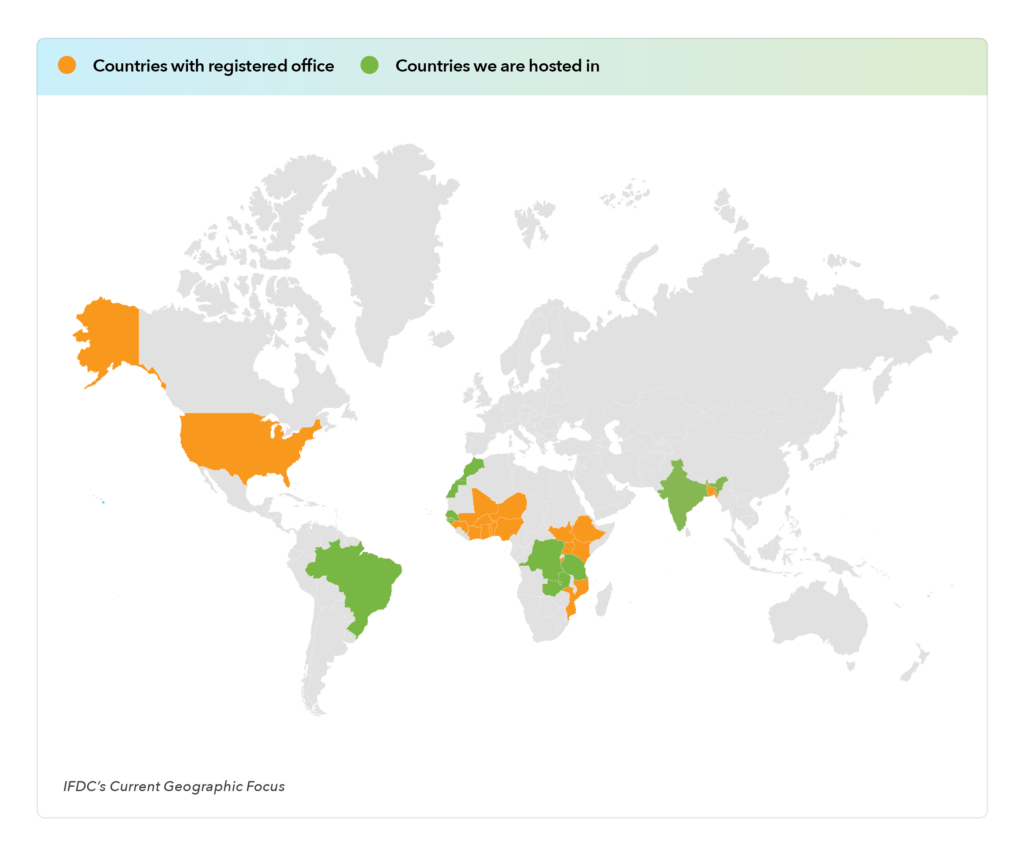
Over the next decade, IFDC will be at the forefront of transforming soil fertility systems worldwide – laying the foundation for resilient, productive, and sustainable agri-food systems that address food and nutrition insecurity. We will unlock the full potential of soils by pioneering innovative fertilizer research and addressing the critical challenges of nutrient use efficiency in Africa and Asia. By orchestrating multi-stakeholder networks that unite public, private, and civil society sectors, we will scale solutions and practices that improve soil fertility and farmer productivity. Underpinning our research and development is a core focus on shaping global collaboration, markets, and regulation that support sustainable agriculture and recirculation of nutrients.
Our ambition is clear: to empower millions of smallholder farmers to regenerate soils and boost productivity, reducing pressure to expand farmland, cutting greenhouse gas emissions, and sustainably achieving global food and nutrition security.
Read more about IFDC’s strategy.
IFDC and the SDGs
The United Nations Sustainable Development Goals for 2030 (SDGs) have sharpened the world’s focus on agriculture’s role in ending poverty and hunger, achieving food security and improved nutrition, and promoting sustainable agriculture. IFDC activities in sub-Saharan Africa and Asia contribute to many of the 17 SDG goals, but focus especially on five:
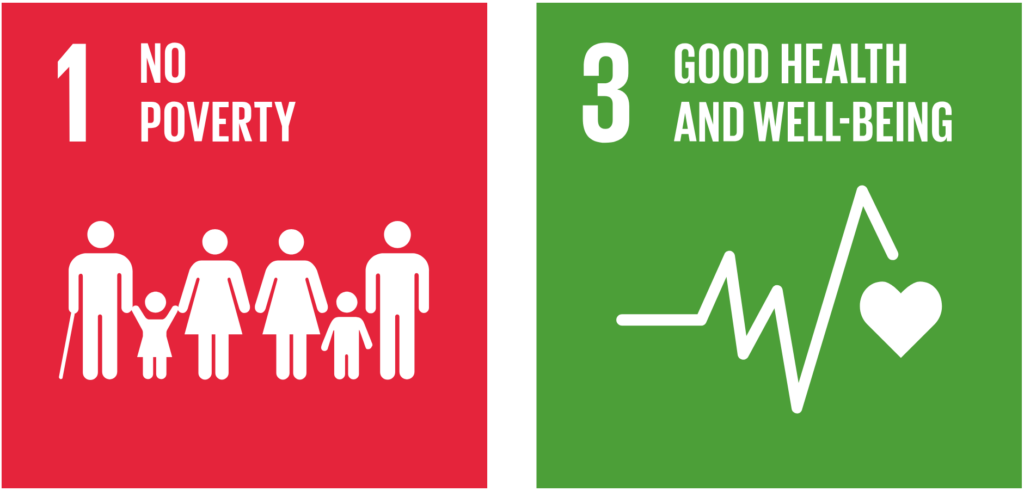
SDGs 1 & 3
When empowered farmers adopt sustainable practices, including ISFM and regenerative agriculture, they increase their yields, improve resilience, and boost their incomes. This outcome supports SDGs 1 and 3.
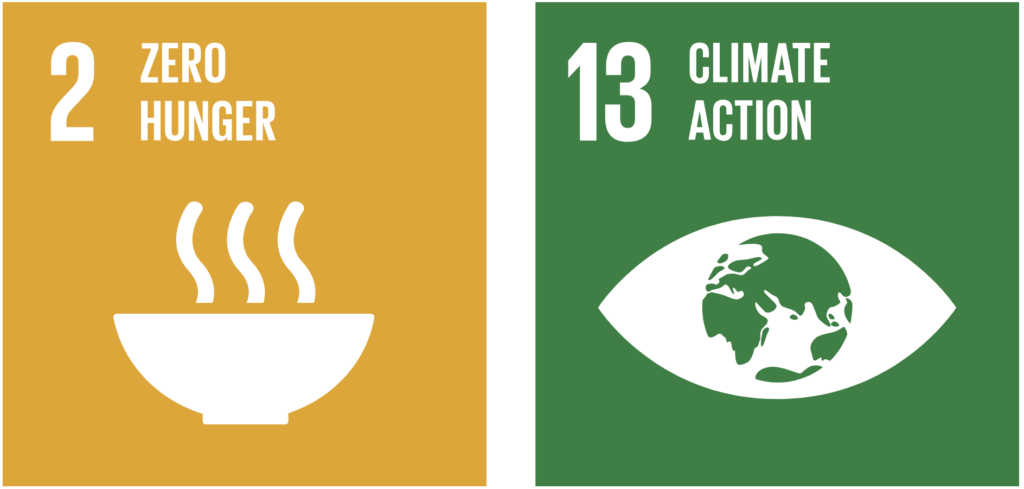
SDGs 2 & 13
Access to climate-smart fertilizers and innovations strengthens soil fertility management and enables farmers to adopt efficient, sustainable practices. This outcome advances SDGs 2 and 13.
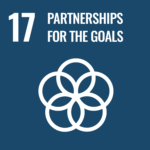
SDG 17
Inclusive policies and enabling institutions create the foundation for scaling. This outcome reinforces CAADP’s cross-cutting commitment to policy harmonization and institutional reform while embedding fertilizer innovation and soil health into national and regional strategies. Globally, this aligns with SDG 17.
Principles and Values
Throughout the world, in all IFDC offices, and with all of our staff and project beneficiaries, IFDC maintains principles and values that are woven through everything we do. These big ideas underscore our commitment to ensuring sustainable growth – whether in agricultural systems, last-mile communities, and even our staff’s professional development.
Our Principles of Engagement serve as the foundation on which our work is built. These ideas inform our decisions, from setting research priorities, to assessing business opportunities, to measuring our effectiveness. Our complementary Organizational Values describe how we approach our work and our relationships with stakeholders, donors, and global staff.
Principles of Engagement
Science-Backed Innovation
IFDC embraces new discoveries – our own or others’– and works with public and private partners to test their applicability in smallholder systems. We deliver scientific evidence that provides a foundation for the adaptation and responsible scaling of technologies and innovations. We use evidence and data to make decisions, learn from results, and share our knowledge.
Environmental Stewardship
IFDC prioritizes improving soil fertility and crop nutrition practices, technologies, and policies to reduce agriculture’s environmental impact. We strive to strengthen the resilience of farmers to cope with increasing climate volatility.
Locally Driven Solutions
IFDC adapts technologies and innovations to meet local requirements and ensures they are profitable for farmers. In all activities, we focus on training and strengthening the regional and local institutions and actors who are ultimately responsible for scaling up adoption and making sustainable agricultural transformation a reality.
Gender and Youth Equity
We are committed to improving the lives of women, youth, and other vulnerable populations involved in agriculture so that they reap the economic and social benefits of development. Empowering women and youth with the tools, knowledge, household parity, and training to pursue agriculture as a business is essential to achieving social equity.
Private Sector Engagement
IFDC believes an engaged private sector is the key to sustainable development. We prioritize building private enterprises’ capacity and facilitating public-private partnerships. The objective is to increase investment, strengthen markets, and improve the policy enabling environment to scale up innovations for smallholder farming systems.
Impact-Driven Approaches
Our impact is consistently measured, documented, and reported through research and development project indicators. Progress is reviewed on a regular basis, and data and intermediate findings are used to revise project approaches as needed.
Organizational Values
Collaborate
We operate as One IFDC, working across programs and countries to deliver meaningful, lasting impact.
Innovate
We learn continuously and design responsible, adaptive solutions that drive measurable results.
Include
We champion equity and ensure that women, youth, and marginalized groups have meaningful voice and opportunity.
Act with Integrity
We steward resources ethically and transparently, holding ourselves accountable to communities, partners, staff, and donors.

Our Initiatives
IFDC partners with allies such as international research institutions, governmental and non-governmental agencies and the private sector to advance, improve and promote food and nutrition security, agricultural sustainability, economic development, and environmental protection.

Our Team
Our team of scientists, agricultural experts, economists, and more make achieving our vision possible. At IFDC, we value teamwork and collaboration. Without these, we simply cannot tackle the challenges that lay ahead of us. We’re always hiring new team members and encourage you to join in our efforts by applying for one of our open positions.
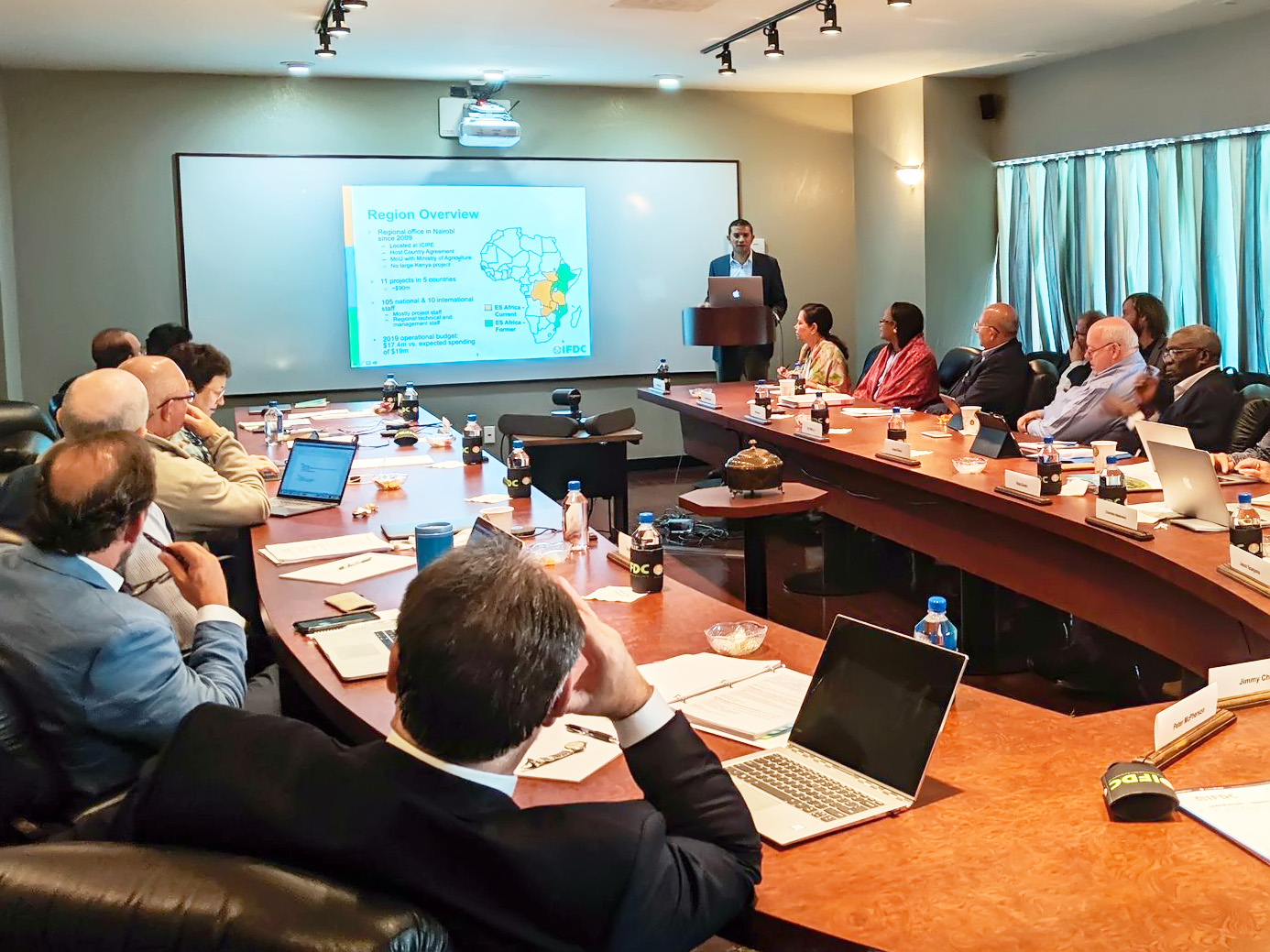
Our Board
IFDC is a public international organization, governed by an international board of directors with representation from both developed and developing countries.

Our History
View our interactive timeline to learn more about IFDC’s 50-year history.

